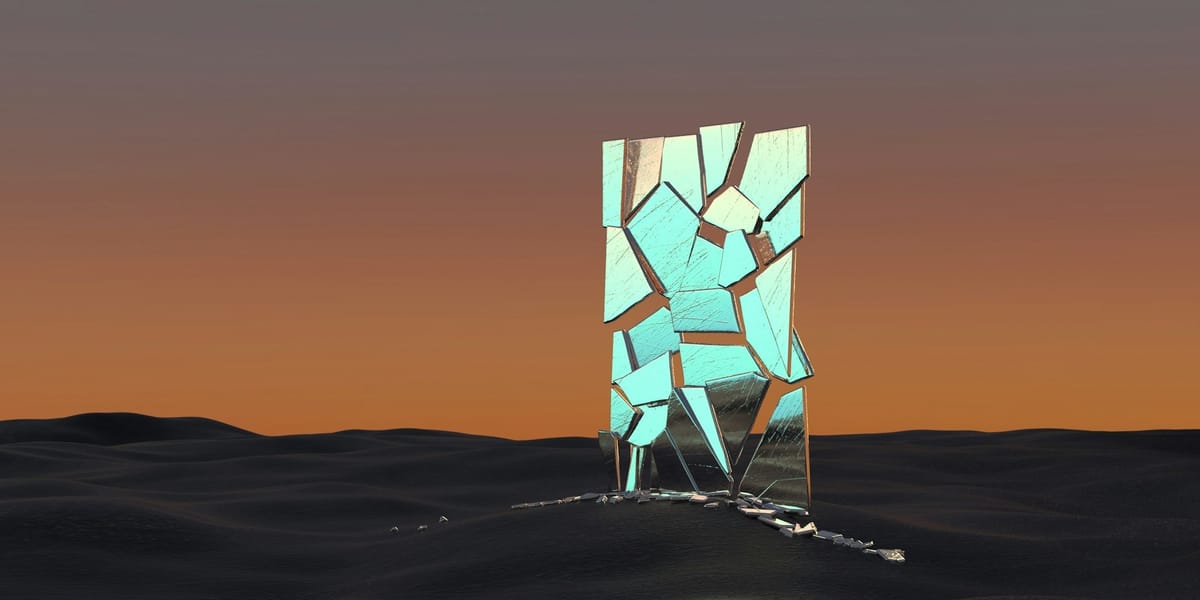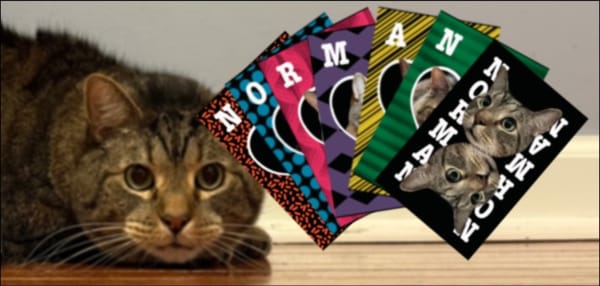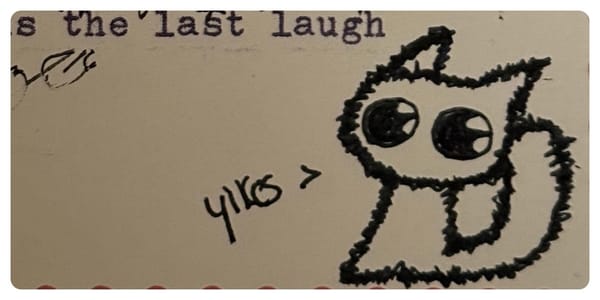Escaping the Endless Scroll - Part One: The Hard Restart
Something strange had happened. Well, something strange in addition to having a stroke and being in the hospital recovering from it. Social media couldn't have gotten so bad so suddenly. The only thing that had changed since I had last logged on was my brain, but that seemed just so... so simple.

Sitting in a hospital room is incredibly tedious. Sitting and waiting for the nurses to come in every hour to test your brain by asking the same twelve questions is more so. And how do we deal with tedium? We go to social media!
Scrolling through my feeds, I found post after post full of outrage, anger, obsession, or worse. With every flick of my thumb, I stepped further and further into the despairing, dark, black and white dichotomy of a Twilight Zone script. Only there was none of the relief, none of the hope, of Rod Serling's calm voice. Instead there was only outrage, anger, and no possible solutions. No one seemed to have any hope that we could escape this nightmare if we just made better choices, if we just cared a little more about our fellow humans.
Lying in a bed in the neuro-ICU, I realized something strange had happened. Well, something strange in addition to having a stroke and being in the hospital recovering from it. Social media couldn't have gotten so bad so suddenly. The only thing that had changed since I had last logged on was my brain, but that seemed just so... so simple.
Had the stroke broken the spell? It feels so cringey to say it that way, and felt that way to me at the time as well. It's hard to escape a perfect metaphor. But had it really? Maybe it was just me.
So I opened the app again.
I tried, but I couldn't stand it. The place I accessed to kill time, to feel connection, to meet like minds, was as repulsive as a half-rotted apple found at the bottom of a trash can. Every post I saw added to the growing sense that I was journeying through the Swamp of Sadness saturated with every drop of unresolved childhood trauma. Folks too young for this reference, thank your parents.
Before the stroke, I had happily played in the mud just like everyone else. It had been fun to sling it at other people, pat it around like making something out of it made a difference, tell my friends how great it was.
Sitting in the silence of the ICU at three in the morning, I found myself physically repulsed by these apps on my phone. Not disgusted by the people I had added over the years, mind you. In the ten years I had grown my social networks, I had learned the value of curating the people in my friends/followers lists. It had become a skill to protect my connections from things like bots, the desperate sort of self-published authors who spammed the "add" and "message" buttons, trolls, and other ne'er-do-wells. So my friends were great people.
But I couldn't protect them, or me, from the apps themselves. The people I cared about weren't in the app. Their ghosts were there, trapped as the vectors for ad clicks and data mining.
Now that I could see it, I didn't want to touch social media without some sort of biohazard equipment, and then only under duress.
"[The] ultimate obscenity is not caring, not doing something about what you feel, not feeling! Just drawing back and drawing in, becoming narcissistic."
- Rod Serling (quote from Carol Serling, via Wikipedia)
When the news about Facebook–Cambridge Analytica broke, I understood logically that we were being manipulated. As someone who works in technology with degrees in psychology and sociology, I understood the underlying theory.
However, the scale of it was breathtaking. Like a Star Wars sky full of battleships and imminent inescapable doom breathtaking. Who would have thought there were people who would not only realize the power of social media but also decide to use it for evil? I'm shocked, shocked I say.
Sarcasm aside, it's important to acknowledge that no one was prepared for this scale of manipulation. We had been promised a better, friendlier, more connected future. We trusted these promises and wholeheartedly adopted these technologies because at the end of the day we are simple, social creatures.
We crave attention. We want to be liked. We yearn for connection.
Social media promised us all that and more. Facebook-Cambridge Analytica was proof that those promises had been shattered. But we didn't stop using social media. We were all told we were being manipulated and fed into the churning maw of a data mining shoggoth and we liked the post before we continued scrolling.
And then, four years later, I had a stroke and now was having an existential dilemma with my phone.
"Why does anyone do this?" I thought, but I had been one of those anyones just six hours ago, before my brain had been turned off and turned on again.
But I know why people do this. I know why I did it.
When I was first getting online, I had the benefit of being of the generation that was told not to trust strangers on the internet. Therefore, IRC chats, AOL messaging, all the forums and whatnot I could get into were always a place where one was cautious. Strangers didn’t become friends until much later after many interactions had proven them friend not foe.
I have vague memories of LiveJournal, where I got to watch other, more internet-savvy, more internet-pretty peoples manage their communities. Sometimes they were awe inspiring, sometimes they were an absolute hot mess. I yearned for that kind of attention, but I was terrible at online interaction. I'd occasionally get in an argument with someone over something meaningless in retrospect. But even in those moments, my poorly articulated stances became the hills I wanted to die on.
Thankfully the few interactions I had beyond people I knew IRL were usually small, insignificant posts on other people’s blogs. Few people came to my little hole I’d carved out of the internet and to be honest, that was very much for the best.
I was a little too old for MySpace when it came to my corner of the world (separated by culture, not geography - Culty Catholicism is fun) so I never quite got the hang of it. But after the blogosphere of LiveJournal, Facebook was my first social media. And like my first boyfriend, it seemed nice at the time.
Looking back, both Facebook and my first boyfriend were shockingly unhealthy for me and abusive in ways I could never be prepared for. But that's not really something you see until you're out of it and it took me over fifteen years and a traumatic brain injury to get it.
At first, Facebook was a fun website to use to stay in touch with friends. It was a "wow I can share photos with people I might not talk to every day" thing. It was a "lol you can poke friends with this silly button" thing (which you can still do for some ungodly reason). It was a way to get that community, forum experience I missed from LiveJournal after it got enshittified.
When working long boring shifts, waiting for something to happen, social media became a place to kill time with shitposting, playing strangely addictive games (e.g. Farmville), messaging friends and the strangers we called friends because that's what they were called in the app. And with each iteration of the app, each new release, each new "improvement to user experience", we became more and more locked in. It moved from browser to phone, and now we could carry it with us in a convenient, pocket-sized form.
We often use the frog boiling in water metaphor to describe this experience. I am, however, obligated to point out that frogs are much more sensitive to change than we are and will get out of the water before it's too hot. The metaphor works as a starting point, but the situation is much more complex. "They" didn't just slowly turn up the water, they made us reliant on the water to communicate with not only strangers on the internet, but our own communities and local resources. We grew gills and soon couldn't breathe outside of the pot, no matter the temperature.
As more and more people joined, social media became a replacement for public communications methods like radio or television (that were just as problematic in their own ways). Social media became indispensable for daily life and important societal infrastructure [1]. But it also grew more and more terrible for that. Not only did the algorithm designed to keep our eyes in the app (and on the ads) push us more toward the outrage, it also became a place where the news happened first.
The relationship between culture, technology, and communication is twisty and as complicated as our brains are. For example, there is a theory that journalism had a significant impact in changing public opinion about the Vietnam War. As with anything, the relationship here isn't directly causal, but this theory sounds right for a very important reason: the Vietnam war was the first war where the distance between battlefield and civilian was reduced to how close you sat to the TV screen.
"As I sat in my office last evening, waiting to speak, I thought of the many times each week when television brings the war into the American home. No one can say exactly what effect those vivid scenes have on American opinion."
- President Lyndon B. Johnson, 1968 via National Archives Blog
If this is what TV did for war, social media brought us even closer to the damage and made it interactive. Horrors could be live streamed, re-tweeted, shared, remixed. It became habit and obligation to comment, to share, to like. If you weren't talking about whatever the horror of the day was, you weren't being a good netizen. How dare you talk about your cat while the world is burning.
The internet had stopped being for cats.
The revulsion I felt in the ten minutes I spent scrolling through social media was fascinating, but also terrifying [2]. I deeply felt the isolation of sitting alone in a hospital room with the realization that I didn't know how to reach out to people or if I should. Did it matter if I posted that I'd had a stroke on social media? Did I have an obligation to share something so deeply personal so people on the internet didn't worry when I didn't show up? Would anyone notice?
I honestly didn't know.
Continued in Part Two: What Happens When Our Friends Are Electric
[1] This is why some have argued that social media has become a public utility and should be treated as such. I agree with them, but wow do I have no idea how we'd go about it.
[2] I am trying so hard not to reference They Live but the comparison is so on the nose that it hurts.



